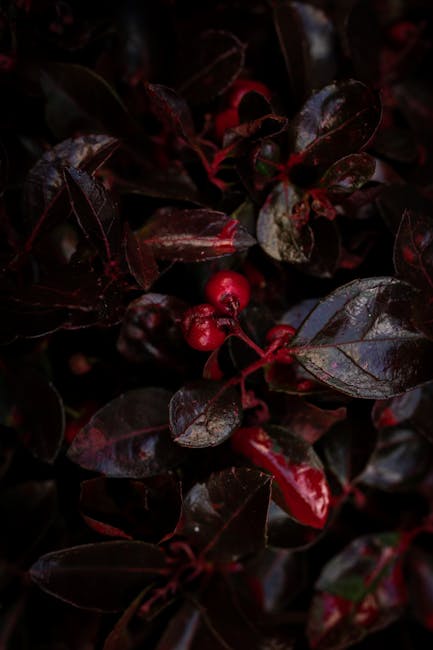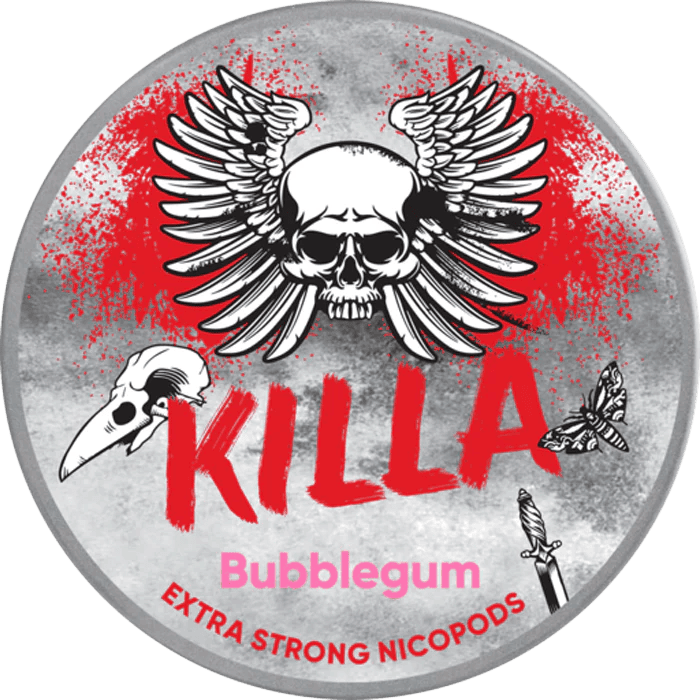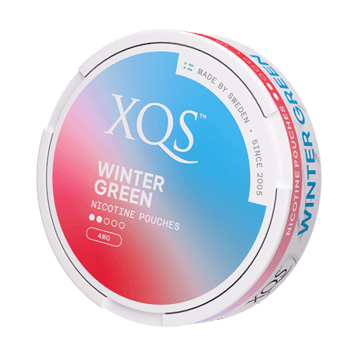What You Need to Know About Wintergreen?
Philip Plainstein

Wintergreen is amazing and has many uses. You might see it in foods or as medicine. But, wintergreen oil can be dangerous. It has something called methyl salicylate in it. This makes it not safe for pregnant women, women who are breastfeeding, or kids.
Remember, only take wintergreen with a doctor’s advice. They can tell you the right amount to use. This is very important for everyone’s safety. Always be careful and ask a doctor before you use it.
Key Takeaways:
- Wintergreen is a versatile plant with a range of uses and benefits.
- It is commonly consumed in small amounts in foods and used as a medicine.
- Wintergreen oil, which contains methyl salicylate, can be toxic and possibly unsafe.
- Pregnant women, breastfeeding mothers, and children should use wintergreen with caution.
- Consult a healthcare professional for proper dosages and personalized guidance.
Uses and Effectiveness of Wintergreen
Wintergreen is known for many uses. It has a lovely taste, so it’s in lots of foods, sweets, and drinks. It’s also used in gels and lotions for a cool, soothing feeling.
It’s great for easing small pains, aches, and swelling. Wintergreen has natural stuff that fights germs and acts like an antioxidant. This makes it even more helpful.
“Wintergreen has versatile applications, from adding a minty kick to culinary delights to providing relief for pesky body pains.” – Dr. Emily Robertson, MD
But, scientists still need to find out more about wintergreen. They want to confirm its benefits for pain and swelling. Lots of studies are looking into its different uses.
Wintergreen as a Pain Reliever
Wintergreen stands out as a natural pain fighter. It contains methyl salicylate, much like aspirin. Rubbed on sore spots, it helps with little pains and muscle achiness.
Antimicrobial and Antioxidant Properties
Studies hint that wintergreen can kill some germs and fungi. Plus, it fights off harmful free radicals. This might help keep you healthy.
Remember to talk to a doctor before using it. They can advise you on the best ways to use it safely. This is especially important if you have health issues.
Side Effects and Precautions of Using Wintergreen
Wintergreen is a well-known natural remedy. It’s seen as safe when used in tiny amounts. But, you must know about the risks and be careful when using wintergreen oil. This oil has a substance called methyl salicylate, which could be harmful if used wrong.
If someone swallows a little bit of wintergreen oil, it can be very dangerous. This is especially true for kids. So, keep the oil away from them to prevent accidents. Also, some people might get a rash if they put wintergreen oil on their skin. So, always check by first using a small amount on a small spot of skin.
For moms-to-be, new mums, and kids, using wintergreen needs extra thought. It’s best not to use this oil when pregnant or breastfeeding. And if you have certain health issues like allergies, asthma, or stomach problems, be careful. Talk to a doctor before you start using wintergreen regularly.
Remember, most of these dangers are about using too much wintergreen oil. Using a bit to add flavour in food is usually okay. But, make sure you don’t overdo it. Always read and follow the advice from the product’s maker. This will help you stay safe.
Dosing and Precautions for Wintergreen
When using wintergreen for health, there isn’t a set dose yet. It’s vital to be careful and follow right instructions for safety. Some important things to know are:
Read and Follow Instructions
Always read and follow the labels on wintergreen products. These products can be different in how strong they are. So, follow the advice to stay safe.
Consult a Healthcare Professional
It’s smart to talk to a doctor before using wintergreen. This is especially true if you have health problems or take medicine. Doctors can customize advice for you, making sure you use the right amount.
Individual Factors and Health Conditions
Wintergreen is natural, but not everyone should use it. The right amount depends on things like how old you are and your health. Some health issues need special care with wintergreen. Always consider your own situation and ask a pro.
“Wintergreen dosages should be determined based on individual factors and health conditions. Consulting a healthcare professional is essential to ensure appropriate usage and avoid any potential risks.” – Me
Wintergreen can’t replace a doctor’s advice. If you’re unsure about how much to use or have questions, talk to your doctor. They’ll give you the help you need to use it safely.
| Precations for Using Wintergreen |
|---|
| Read and follow product label instructions |
| Consult a healthcare professional before use |
| Consider individual factors and health conditions |
| Avoid using as a substitute for medical advice |
Growing and Caring for Wintergreen Plants
Wintergreen plants are great for any garden. They love shady and sunny spots. Perfect for those areas that need something special. Make sure the soil is moist and acidic for them to really thrive.
These plants look like a green carpet. Their leaves turn red and bronze in winter. This adds a lovely touch of colour to your garden all year round.
Wintergreens have berries that were used in sweets and gum. This makes your garden both pretty and tasty.
They’re easy to look after, good for new and old gardeners. Just water them regularly, especially in summer. But, don’t water too much or they might get sick.
There’s no need to cut or trim them. They grow into nice, low mats on their own. Let them be to enjoy their beauty.
Wintergreen plants usually don’t have problems with bugs or diseases. You can relax and just enjoy how they look.
If you want more, you can make new plants from seeds or by dividing them. This way, your garden can enjoy even more wintergreens.
Tips for Growing and Caring for Wintergreen Plants:
- Choose a shady to partially sunny spot in your garden for planting wintergreen plants.
- Ensure the soil is moist and acidic, providing the ideal growing conditions.
- Water them often, especially in summer, to keep them happy.
- Don’t water too much; it can harm the plants.
- There’s no need to cut them. Let them grow freely.
- Enjoy how easy it is to care for wintergreen plants.
- You can make more by seed or by dividing them to share with friends.

Recommended Growing Zones for Wintergreen Plants:
| Zone | Minimum Temperature |
|---|---|
| Zone 3 | -40°C to -34°C |
| Zone 4 | -34°C to -29°C |
| Zone 5 | -29°C to -23°C |
| Zone 6 | -23°C to -18°C |
| Zone 7 | -18°C to -12°C |
| Zone 8 | -12°C to -7°C |
Wintergreen plants bring something special to every garden. They offer great ground cover or bright spots of colour. Your garden will look lovely with them.
Now, let’s see how we can use wintergreen in cooking and for its taste.
Flavour and Culinary Uses of Wintergreen
Wintergreen brings a unique taste to dishes. Its minty flavour is stronger than peppermint. This makes it loved by many chefs and food lovers.
It gets its taste from a chemical called methyl salicylate. This is similar to what’s in aspirin. But, if you’re allergic to aspirin, be careful with wintergreen.
I love using wintergreen in my cooking. It makes ice creams, cocktails, and baked goods more exciting.
Infusing Wintergreen in Your Culinary Delights
You can pick wintergreen’s leaves all year. They work well for making tea, sorbets, and more.
Wintergreen tea has become my favourite drink. It’s minty but not too strong, perfect for relaxing.
Steep the leaves in hot water to infuse wintergreen. Or, mix them with other things to make syrups or extracts. Wintergreen is very versatile in the kitchen.
A Glimpse of Wintergreen’s Culinary Inspiration
| Culinary Uses | Examples |
|---|---|
| Ice Cream | Wintergreen ice cream is a cool, unique flavour. |
| Cocktails | Wintergreen makes cocktails taste fresh and fun. |
| Baked Goods | Use it in cookies, cakes, and pastries for a minty twist. |
| Sorbets and Granitas | It makes sorbets and granitas a perfect after-meal treat. |
Add wintergreen to your meals for a fresh twist. It will make your food more enjoyable and memorable.
Wintergreen in Traditional Medicine
For centuries, people have used wintergreen in traditional medicine. They find it good for pain, swelling, fighting germs, and making you pee more. It helps with headache, sore joints, and stomach issues toowintergreen. They use it in many ways like mixing, soaking, or putting on your skin for problems. But remember, while it’s old, we don’t have lots of modern studies to prove it works.
Traditional healers trust wintergreen can help with many problems because of what is naturally inside it. Its pain relief is like magictraditional medicine. It might also help with redness and pain from diseases like arthritistraditional medicine. If you cut yourself, it could stop germs from spreadingwintergreen. Plus, it makes you pee, which could help clean your body insidetraditional medicine.
Even though traditional medicine likes wintergreen, science isn’t fully on board yet. We need more research to be sure it’s safe and how much to use. If you plan on using wintergreen, talking to a doctor first is smart advicewintergreen.
Quote:
“While traditional medicine has long relied on wintergreen for its healing properties, it is essential to explore and validate its efficacy through modern scientific research.” – Dr. A. Smith, Traditional Medicine Expert
Potential Benefits and Applications of Wintergreen Oil
Wintergreen oil comes from the wintergreen plant’s leaves. It offers many possible benefits and uses.
It’s often used for massages. The oil can make you feel better and reduce pain. This is good for sore muscles. It can also help with swelling. Massaging with this oil can make your muscles relax.
People also use it in aromatherapy. The smell of wintergreen oil is nice and uplifting. It makes you feel calm and full of energy. You can put it in a diffuser or in your bath to relax and feel less stressed.
Just remember to mix wintergreen oil with another oil before using it. This helps avoid skin problems. It’s smart to talk to a doctor or an aroma expert before using this oil.
Safety Considerations when Using Wintergreen Oil
Using wintergreen oil safely is crucial for a good time. This oil has a substance called methyl salicylate. It can be dangerous if too much is used or taken by mouth. Here are ways to be safe with wintergreen oil:
1. External Use Only
Don’t eat and drink wintergreen oil. It should only touch your skin. This keeps you away from getting very sick. Just put a little bit on your skin for its good effects.
2. Dilute in a Carrier Oil
Wintergreen oil is very strong and could hurt your skin when it’s not mixed with something else. So, mix it with a carrier oil like coconut, almond, or jojoba oil before using. This keeps your skin safe and happy.
3. Perform a Patch Test
If your skin is easily hurt or you’re allergic to some things, you should test a bit of wintergreen oil first. Put a small amount that’s mixed with another oil on a patch of skin. Wait a day to see if your skin gets red, itchy, or hurts. If it does, stop using it.
4. Avoid during Pregnancy and Breastfeeding
Pregnant women, mums who are feeding their babies, and kids should stay away from this oil. It might be too strong for them. It’s really important to talk to a doctor first if you are unsure.
5. Discontinue Use if Adverse Reactions Occur
If using this oil makes you feel bad, stop using it right away. This could be if your skin gets red or if it’s hard to breathe. If you feel very poorly, get help from a doctor.
By being careful and following these steps, wintergreen oil can help you without making you ill. Always be safe, mix it with another oil, and ask a doctor if you’re not sure.
Wintergreen as an Evergreen Groundcover
Wintergreen is great for landscaping as it stays green all year. It spreads out to cover the ground with shiny green leaves. This makes the area look good no matter the season.
It loves shade and moisture. Wintergreen does well in cooler places like the UK. It comes from North America, which is why it’s a natural choice for British gardens.
What makes wintergreen special is its minty smell and tasty berries. This brings a nice smell to the garden and makes it a fun place to be.
Placing wintergreen near blueberries and mountain laurel is smart. It helps them grow better and makes the garden more interesting. Wintergreen is great for making borders or filling empty spots with its beautiful spread.
Wintergreen is easy to look after. It doesn’t need a lot of work once it’s settled. So, it’s perfect for people who want a pretty garden without a lot of effort.
Benefits of Wintergreen as an Evergreen Groundcover
Wintergreen does a lot more than just look nice. Its thick growth stops weeds from growing. It also helps keep soil from washing away on hills or soft ground.
This plant is good for the environment too. It’s always green, which is great for wildlife. The thick leaves feed and shelter small animals. It also protects the soil from bad weather.
In short, wintergreen is a great choice for lots of outdoor areas. It makes them look, feel, and do better. With its green colour all year, easy care, and help for the environment, it’s a top pick for gardens everywhere.
Wintergreen as a Decorative Plant
Wintergreen is great for more than just eating or medicine. It looks beautiful too. With its shiny, green leaves that stay all year, it stands out in the autumn. This adds a lot of beauty and green to the world when other plants go dull.
These plants are good for many places. They can go in gardens, edges, or pots to add colour. Wintergreen’s leaves are glossy and they don’t grow tall. So, they cover the ground well. This turns empty spaces into pretty green carpets.
Red berries show up on wintergreen in the cold months. These berries make the place look nice. They add colour and make the land feel alive in winter. You can put the plant alone or mix it with others. This way, you get a beautiful scene.
Plus, wintergreen doesn’t need a lot of work. It’s good for new gardeners too. It likes not too sunny places and moist soil. You need to water it well, especially in the hottest times. But, bugs and diseases don’t bother it much.
In a few words, wintergreen is both useful and pretty. It has shiny leaves, bright berries, and doesn’t need lots of care. It fits well in gardens, edges, and pots. So, enjoy the beauty that wintergreen brings to your space.
Conclusion
Wintergreen is amazing and can be used in many ways. Its cool taste is great in food and drinks. People also use it for minor pains.
But, you must be careful with wintergreen. Too much can be not good. It’s risky for pregnant women, mums who breastfeed, and kids. We need more studies to know if it’s totally safe.
Talk to a doctor before using wintergreen. They can tell you what’s best for you. This way, you can enjoy its benefits safely.









